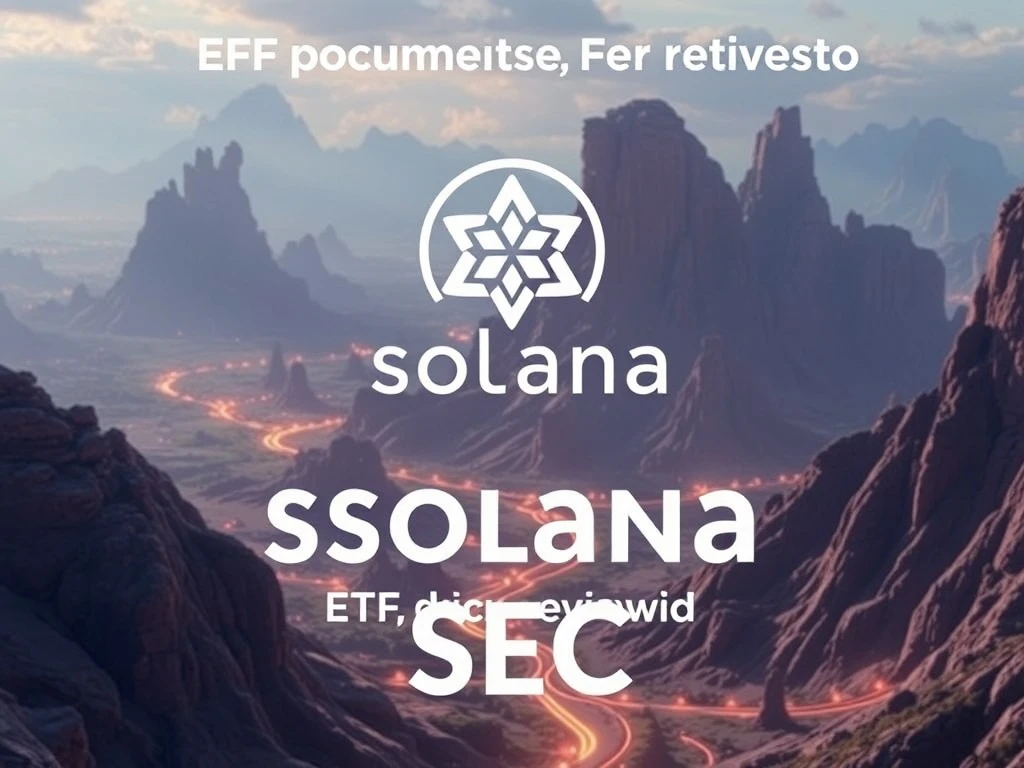Solana ETF Breakthrough: Five Groups Propose Revolutionary LST-Based Fund to SEC

In a groundbreaking move, five prominent entities—Zto Labs, Bitwise, Multicoin Capital, VanEck, and the Solana Policy Institute—have submitted a proposal to the U.S. Securities and Exchange Commission (SEC) for a spot Solana (SOL) Exchange-Traded Fund (ETF) that incorporates Liquidity Staking Tokens (LSTs). This innovative approach could bridge traditional finance and decentralized technologies, offering investors exposure to Solana while earning staking rewards.
What Makes the Solana ETF Proposal Unique?
The proposed Solana ETF leverages Liquidity Staking Tokens (LSTs), which represent staked SOL tokens. This mechanism allows investors to retain liquidity while participating in network staking and earning yield. Key benefits include:
- Enhanced liquidity for staked assets
- Simplified operational complexity for issuers
- Potential appeal to both institutional and retail investors
Why the SEC’s Decision on This Solana ETF Matters
The SEC has historically been cautious about cryptocurrency ETFs due to concerns about market manipulation and investor protection. However, recent approvals of spot Bitcoin ETFs and legal developments suggest a possible shift in regulatory posture. The Solana ETF proposal could test whether this accommodating stance extends to other crypto assets.
Potential Impact of a Liquidity Staking Tokens ETF
If approved, this Solana ETF could:
- Increase institutional investment in Solana
- Enhance SOL’s market liquidity
- Set a precedent for other proof-of-stake crypto ETFs
- Contribute to regulatory normalization of staking mechanisms
Challenges Facing the Solana ETF Proposal
While promising, the proposal faces significant hurdles:
| Challenge | Description |
|---|---|
| Regulatory Approval | SEC’s history of cautious crypto ETF approvals |
| Market Transparency | Need to demonstrate sufficient market oversight |
| Investor Protection | Ensuring adequate safeguards for participants |
What Investors Should Watch For
Key factors to monitor include:
- The SEC’s review timeline
- Technical details of LST implementation
- Overall market conditions
- Regulatory developments
This Solana ETF proposal represents a significant step in crypto’s maturation, potentially accelerating mainstream adoption by providing a regulated investment vehicle. The convergence of traditional finance and blockchain innovation could reshape the investment landscape.
Frequently Asked Questions
What are Liquidity Staking Tokens (LSTs)?
LSTs are tokens that represent staked cryptocurrency, allowing investors to earn staking rewards while maintaining liquidity.
Why is this Solana ETF proposal significant?
It combines traditional ETF structure with blockchain staking rewards, potentially creating a new investment model for proof-of-stake cryptocurrencies.
When might the SEC decide on this proposal?
There’s no fixed timeline, but similar ETF proposals have taken several months to years for approval.
How would this ETF differ from Bitcoin ETFs?
Unlike Bitcoin ETFs, this proposal incorporates staking rewards through LSTs, adding a yield component absent in Bitcoin products.
What are the risks of investing in a Solana ETF?
Potential risks include regulatory uncertainty, market volatility, and technical challenges with the underlying blockchain.










